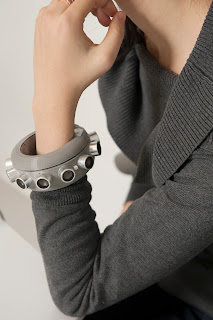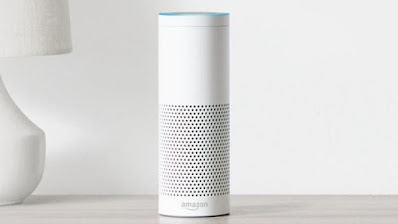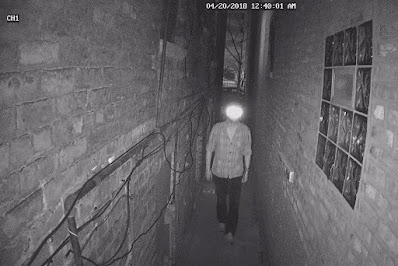Using ultrasonic waves for security...The way to have a private conversation in this world full of smart devices where data is sold for money

Many smart-speaker owners don’t realize it, but Amazon keeps a copy of everything Alexa records after it hears its name. Apple’s Siri, and until recently Google’s Assistant, by default also keeps recordings to help train their artificial intelligence.
So come with us on an unwelcome walk down a memory lane. They listened to four years of my Alexa archive and found thousands of fragments of my life: spaghetti-timer requests, joking houseguests, and random snippets of “Downton Abbey.”
There were even sensitive conversations that somehow triggered Alexa’s “wake word” to start recording, including my family discussing medication and a friend conducting a business deal.
For as much as we fret about snooping apps on our computers and phones, our homes are where the rubber really hits the road for privacy. It’s easy to rationalize away concerns by thinking a single smart speaker or appliance couldn’t know enough to matter.
But across the increasingly connected home, there’s a brazen data grab going on, and there are few regulations, watchdogs, or common-sense practices to keep it in check.
Let’s not repeat the mistakes of Facebook in our smart homes. Any personal data that’s collected can and will be used against us. An obvious place to begin: Alexa, stop recording us.
The spy in your speaker “Eavesdropping” is a sensitive word for Amazon, which has battled lots of consumer confusion about when, how, and even who is listening to us when we use an Alexa device. But much of this problem is of its own making.
Alexa keeps a record of what it hears every time an Echo speaker activates. It’s supposed to record only with a “wake word” — “Alexa!” — but anyone with one of these devices knows they go rogue.
They counted dozens of times when mine was recorded without a legitimate prompt. (Amazon says it has improved the accuracy of “Alexa” as a wake word by 50 percent over the past year.)
Here is the Story of a couple who battled for privacy by making a new invention...
Last year, Ben Zhao decided to buy an Alexa-enabled Echo speaker for his Chicago home. Zhao just wanted a digital assistant to play music, but his wife, Heather Zheng, was not enthusiastic about it. "She freaked out," he said.
When Zhao put the Echo in a workspace they shared, she made her point very clear: "I said, I don't want that in my office, Please unplug it!, I know the microphone is constantly on." Zhao and Zheng are computer science lecturers at the University of Chicago.
After a long fight, they were able to finally calm down and were some able to become one of the greatest couples who made a Technical breakthrough.
With the help of a graduate student, Pedro Lopes, they designed a piece of digital armor: a "bracelet of silence" that will jam the Echo or any other microphones in the vicinity from listening in on the wearer's conversations.
The bracelet is like an ad-blocker. It has 24 speakers that emit ultrasonic signals when the wearer turns it on. The sound is imperceptible to most ears, but nearby microphones will detect the high-frequency sound instead of other noises.
When you have something private to say, you can activate it in real-time. When they playback the recording, the sound is going to be gone," Lopes said.

Google and Amazon have sold millions of Nest and Ring security cameras, while an estimated 1 in 5 American adults now owns a smart speaker: Knocking on someone's door or chatting in someone's kitchen now involves the distinct possibility of being recorded.
It all presents new questions of etiquette about whether and how to warn guests that their faces and Words could end up on a tech company's servers or even in the hands of strangers.
By design, smart speakers have microphones that are always on, listening for so-called wake words like "Alexa," and "Hey, Siri," or "OK, Google." Only after hearing that cue are they supposed to start recording. But contractors hired by device-makers to review recordings for quality reasons report hearing clips that were most likely captured unintentionally, including drug deals and sex.

Two Northeastern University researchers, David Choffnes and Daniel Dubois, Recently played 120 hours of television for an audience of Smart speakers to see what activated the devices. They found that the machines woke up dozens of times after hearing phrases similar to their wake words.
"People fear that these devices are constantly listening and recording you. They're not," Choffnes said. "But they do wake up and record you at times when they shouldn't.
Google's head of hardware, recently said homeowners should disclose the presence of smart speakers to their guests. Welcome mats might one day be swapped out for warning mats.
Or perhaps the tech companies will engineer their products to introduce when they hear a new voice or see a new face. Of course, that could also lead to uncomfortable situations.
"Rather than building individual defenses, we need policymakers to pass laws that more effectively guard our privacy.
Until then, we're playing cat and mouse. And that always ends poorly for the mouse," says Woodrow Hartzog, a law and computer science professor at Northeastern University NYT NEWS SERVICE.
People Are Also Protesting against AI facial recognition, for example...
In 2016, Scott Urban, an eyewear maker in Chicago, developed a line of reflective frames that turned back visible and infrared light.
When a surveillance camera films a person wearing the $164 frames, the reflected light blurs out the face. Mr. Urban called them Reflectacles.

He is now working full time on privacy protection eyewear, including a new version with lenses that absorb infrared light to deter iris-scanning and facial recognition cameras. His customers include privacy enthusiasts, political activists, and card counters whose faces have been placed on casinos’ watch lists.
“People into their privacy are no longer shunned as loonies,” Mr. Urban said. “It’s become a concern for people of all ages, political perspectives and walks of life.”
He added: “New technologies are continually eroding our privacy and anonymity. People are looking for an opt-out, which is what I’m trying to provide.
After reading this article, If there are a few questions in your mind. We are here to answer those questions! Just comment below!


0 Comments